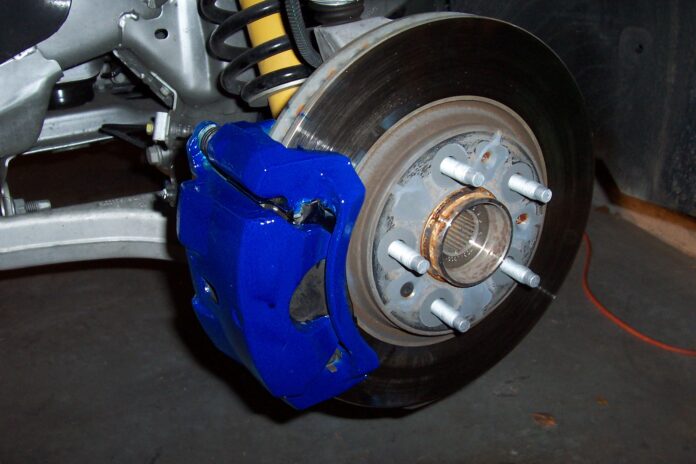The brake caliper requires replacing, so make sure that you need to stop it when you press its brake pedal. Almost many numerous times, you can fail to press it. Bad brake calipers are mostly caused due to major issues like leaks, corrosion, guide pins, etc. When the brake caliper creates an issue, it can suddenly get stuck closed or dwell open. Mostly, you will notice many unknown problems, and not easy for you to identify what are the symptoms of a bad brake caliper with the brake caliper. Probably brake pads bring down their stopping strength. Occasionally, you may observe that you press the car’s brake pad, dragging toward one side.
What are the symptoms of a bad brake caliper, and how do they occur?
There are many symptoms of bad brake caliper due to certain issues. Some ordinary symptoms are listed below:
Fluid leaking
However, if the brake pedal starts working badly, you may feel brake fluid leaking. The fluid of hydraulic helps to operate the caliper at all times. When the brake is not working, the piston device or bleeder excretes out some oil fluid due to some holes in the cylinder. Take a wet cloth, and check where the leak comes out on the ground. For sure, take disposable cardboard or set it down and stipulate the place of the leak.
Unfamiliar Noises
You might judge that when the brake paddles twig then produces some enormous sound. It’s a sign that your brake pads can get stuck during driving the car. When the caliper doesn’t attach to the brake pedal and produces a continuously sound of rattling or probably, brakes create noise when it is not in use. It can rotate, pull out, or cause grinding problems when it permanently twigs with a caliper.
The consequences of brake caliper
In cars, wheel discs are located on the front, and four-hoop sides brake. This advance system of the braking metal braking system is also called the rotor, which is located near the wheel. When you push the brake pedals, both of the brake pedals attach with the rotor or strike the wheel and stop the car from moving.
When the brake caliper guzzles the stage, the brake pedal attaches to the hydraulics for help. Sometimes, when you press the brake pedal, the pressure of the hydraulic where-line brake system joins with the brake caliper. The rotor pads depress with the caliper cylinder. Likely, you step out from the brake pedals, then suddenly, it comes into its earliest shape, and the wheel moves on the loose.
Conclusion
There are several symptoms of brake calipers, such as reduction in stopping power, dragging and abnormal smell, etc., and some of them cause serious issues. If you do not know anything about changing the pistons or cylinder, you should go to the mechanic shop to repair it or always put a small kit box in the car to change or rebuild the brake caliper.






